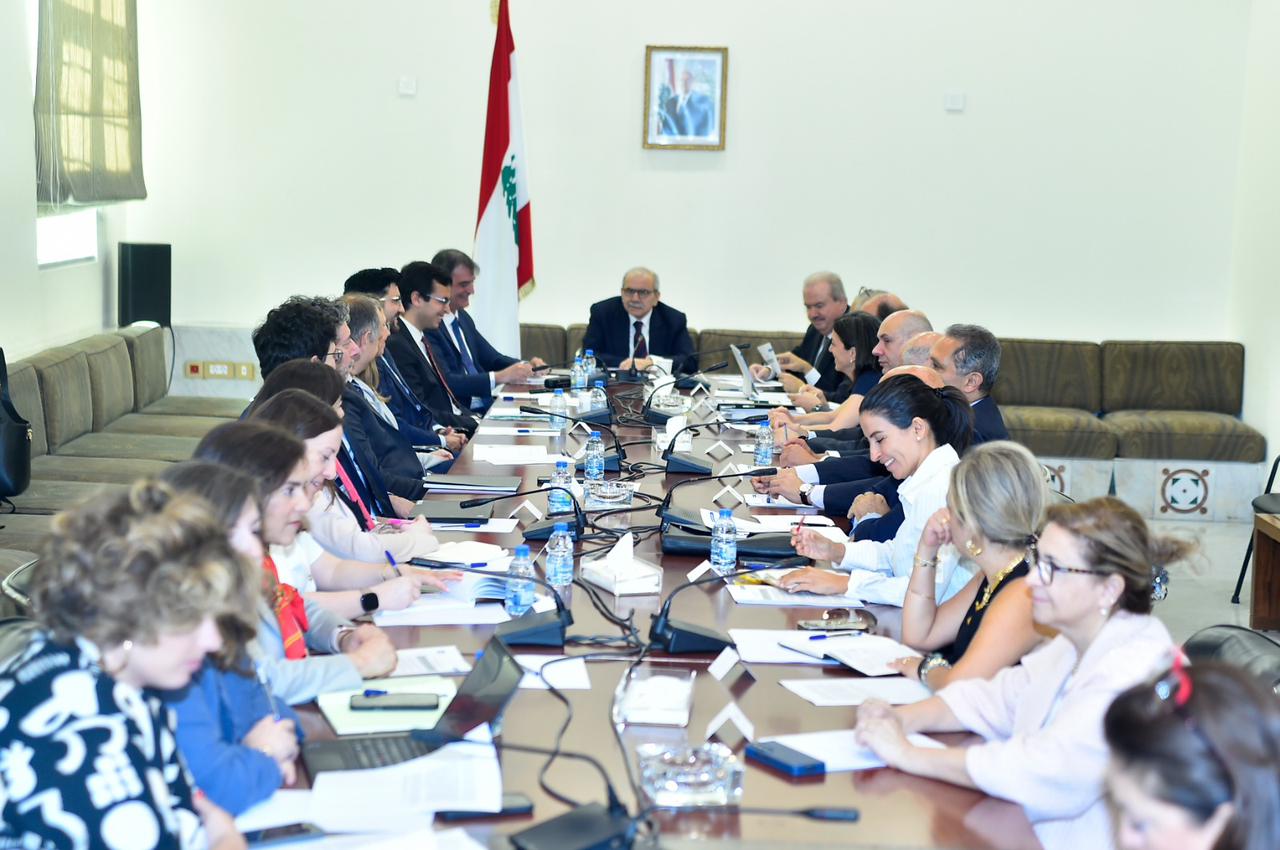LOC10:18
07:18 GMT
 Lebanese Prime Minister holds a meeting with the International Monetary Fund mission (IMF)
Lebanese Prime Minister holds a meeting with the International Monetary Fund mission (IMF)
News report by Ayyoub Khaddaj
BEIRUT, July 7 (KUNA) -- The International Monetary Fund (IMF) has recently earmarked USD 250 million to aid Lebanon and dispatched a delegation to Beirut to ensure that the administration is heeding terms for further and broader financial aid.
The IMF officials held talks during the visit with local decision makers on a prospected financial reform program aimed at boosting growth and aiding limited income segments ahead of the aspired bail-out deal.
Prime Minister Nawaf Salam described, in a statement, the talks with the IMF mission as "responsible and realistic," affirming his confidence in the international fund to restore financial stability and follow up on structural reforms in the Lebanese administration.
In a statement to Kuwait News Agency (KUNA), Minister of Finance Yassin Jaber said the negotiations with the IMF had proceeded positively and revealed that the fund officials during their visit to the country affirmed that there was "tangible progress regarding the financial regulations and the aspired reforms." However, he expressed some concerns at impact of regional "security developments" on the country.
Minister Jaber said his department had "accomplished plenty of reform steps," namely the enactment of the banking confidentiality law (endorsed by the parliament) and the draw-up of the banks regulation law that had been submitted by the government to the assembly to examine it by the legislators ahead of the final endorsement.
Alluding to a major challenge, minister Jaber acknowledged that the aspired "financial vacuum law" (compensating banks' depositors) remains among the required reforms, indicating that the issue would be re-addressed once deputies of the Central Bank Governors have been assigned.
He expressed optimism that positive results in this respect would be ultimately attained due to determination of the president, the parliament speaker and the government to press ahead with the needed reforms "not because this is an international demand but because it is an internal requirement."
Lamyaa Al-Mubayyed, Chairperson of Basil Fleihan Institute for Economy and Finance and member of the Lebanese delegation holding the talks with the IMF, said in a statement to KUNA that the IMF grants soft loans to a member state according to its contributions to the fund, thus Beirut looks forward to attain USD three billion only, though the estimated need considering the heavy losses from the latest war reaches USD eight billion, therefore, "we will be compelled to seek aid from donors"
Al-Mubayyad affirmed that the IMF needs to see tangible financial and administrative reforms before bailing out the country, adding that the fund stand "is technical and not political."
Antoine Farah, the head of the economy department at the local daily newspaper, "Al-Jumhouriya," said the main axis of the talks with the IMF relates to working out a funding program, affirming that the pace of the discussions with the fund has been slow.
He indicated that the parliament had approved the banking confidentiality law, heeding a main term by the IMF, in addition to the bill for banking reforms. But the most significant bill for the reforms is "the financial vacuum law," related to the afflicted depositors who lost their money in the banks when value of the national currency deteriorated reaching some 90,000 pounds per a single US dollar.
Farah believes that this issue will be delayed until after parliamentary elections due in the next spring and indicated that it will be examined during a planned visit by an IMF delegation to the country in September.
Finance Minister Yassin Jaber had expressed his belief that the banking regulation law would be endorsed by the parliament before end of this month.
For his part, the former minister of economy, Alaine Hakim, said the Lebanese economy cannot shore up without financial support from the GCC countries. He also indicated that luring external investments is also crucial to re-inject life into the ailing economy, but he stressed that attracting the entrepreneurs requires a stable security and restricting arms' possession to the state hands.
The IMF has recently declared approval to allocate USD 250 million for Lebanon for emergency reconstruction and revealed in a statement that the country needs USD 11 billion to cover some losses that resulted from the war between October 8, 2023, and December 20, 2024.
The Lebanese financial-economic crisis has deepened since 2019 as the national currency lost more than 90 percent of its value and the domestic product has shrunk by 60 percent. (end)
ayb.rk